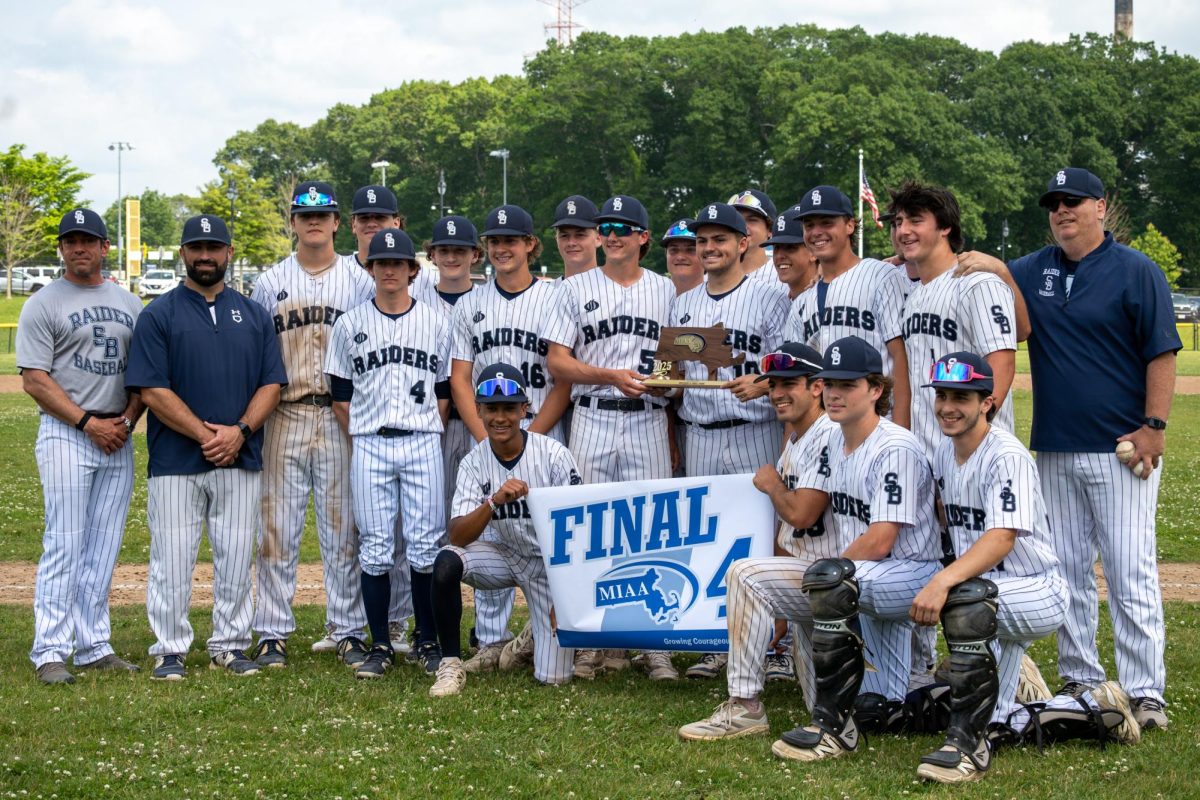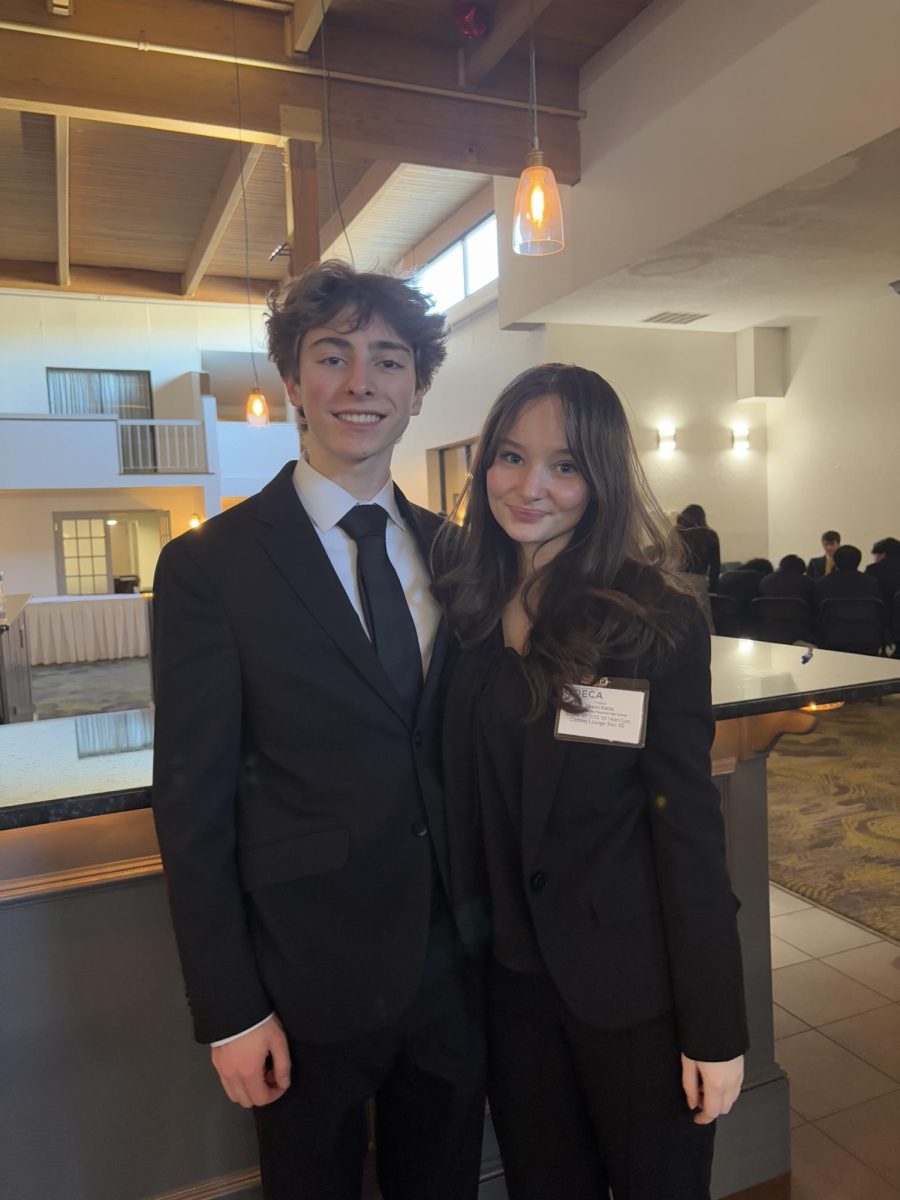Following the removal of MCAS as a standardized state graduation requirement school boards must decide the rigor involved in students receiving their diploma. The SBRHS school board has recently looked towards the MassCore standard. The program of studies includes the successful completion of four years of English, four years of mathematics, three years of a lab-based science, three years of history, two years of the same world language, one year of the arts, and five elective courses. One year of technology through a computer science course that includes rigorous mathematical or scientific concepts and aligns with the 2016 Digital Literacy and Computer Science Framework can substitute for either a mathematics course or a laboratory science course.
By senior year students are given the priority selections in electives as they are often pushed aside during previous years. The importance of an open schedule allows students to choose the courses that pertain to their future career or major. Therefore the implementation of another senior course requirement restricts students from an elective course which could benefit them. This 4th course of math will not be completed during previous years through doubling up similar to the English requirement. New electives are also often added and removed, therefore if an elective course is approved during a student’s junior year and they wish to take it, the open slot from not having the requirement will allow the student to take it. Students having their senior year open gives them the ability to choose the courses relevant for their future with the standardized mold limiting their opportunities.
With the emergence of mathematics driven society there are numerous career opportunities which are available for students. When a student is unsure about their career path the requirement provides a safety net in switching majors. Most rigorous colleges look for students who have followed the MassCore standard for acceptance. This will place SBRHS students at a higher standard compared to other schools and will increase the difficulty in achieving their diploma. According to Top Tier Admissions, “When asked to name which advanced high school math courses carry the most weight for admissions, 75% of admissions professionals named AP Calculus, and 79% agreed with the statement, ‘Students who have taken calculus are more likely to succeed in college.’” During the 2024 graduation year statistics 67% of students who graduated met the MassCore standards and 70% of students attended higher education. These statistics are closely related as students who complete the MassCore standards have an increased chance of attending college.
The math courses that will cover this requirement include statistics at any level (ACP, Honors, or AP), pre-calculus at any level, and calculus AB and BC. If students wish to supplement their 4th year of math with a computer science based course they can do so. The computer science courses are focused on logic based reasoning systems. Mathematics is prioritized due to the critical thinking and problem solving skills involved. Computer science programs allow for students to exercise these same skills through computational thinking. When creating programs students have to think about various possible solutions to make their program work. Robotics allows students to understand mathematical principles (sine, cosine, angles/radians, and waves) in order to perform rotations and movements.
The main group of students this will negatively impact are those who struggle with mathematics and who have high needs in education. The percentage of high needs students at SBRHS has been increasing over the last 10 years. These include students with educational accommodations, low income individuals, and students with learning disabilities. Students who plan on attending rigorous colleges often already take the 4 years of math without the requirement and this implementation could make it difficult for students who are already struggling with the 3 year requirement. The computer science based courses can be a reasonable alternative for them however this can depend on how much one-to-one learning time is provided to them.
During an interview with the school board chairperson a discussion took place relating to the idea of adding a math course in relation to personal finance and the mathematical principles utilized in real world applications. This course would teach students how to calculate and manage tax along with major financial managements such as loans, stocks, debts, credits.
In relation to elective management there has been a suggestion of having electives as a semester based course (similar to the structure of health and civics class). The idea is to allow students to attend more elective courses with the implementation of the requirements. However this will only allow students to have a surface level understanding of the electives and will prevent those who are serious about the elective from getting into complex topics and skills relating to it. The management of schedules is also a concern of if the student chooses to continue the course or switch to a different elective with limited options due to scheduling.
Teachers have been protesting in front of the school in the mornings against the cutting of a math teacher. This decision was made for budgetary reasons however the math requirement could cause issues with management for classes. The courses are structured based on various tiers which currently hold ACP, Honors, and AP although previously there was a CP level for students who struggled with the subject. The committee had removed this level and combined CP with ACP increasing the number of students in a class. The removal of the math teacher paired with the 4th year requirement increased the number of students by around 20% (Based on the data of students who took 4 years of math last year 20% of students did not). Mathematics is the most successful when taught on an individual level for students who struggle with the content. Teachers need to have manageable class sizes in order to provide the help necessary for struggling students in their fast paced limited time frames.








